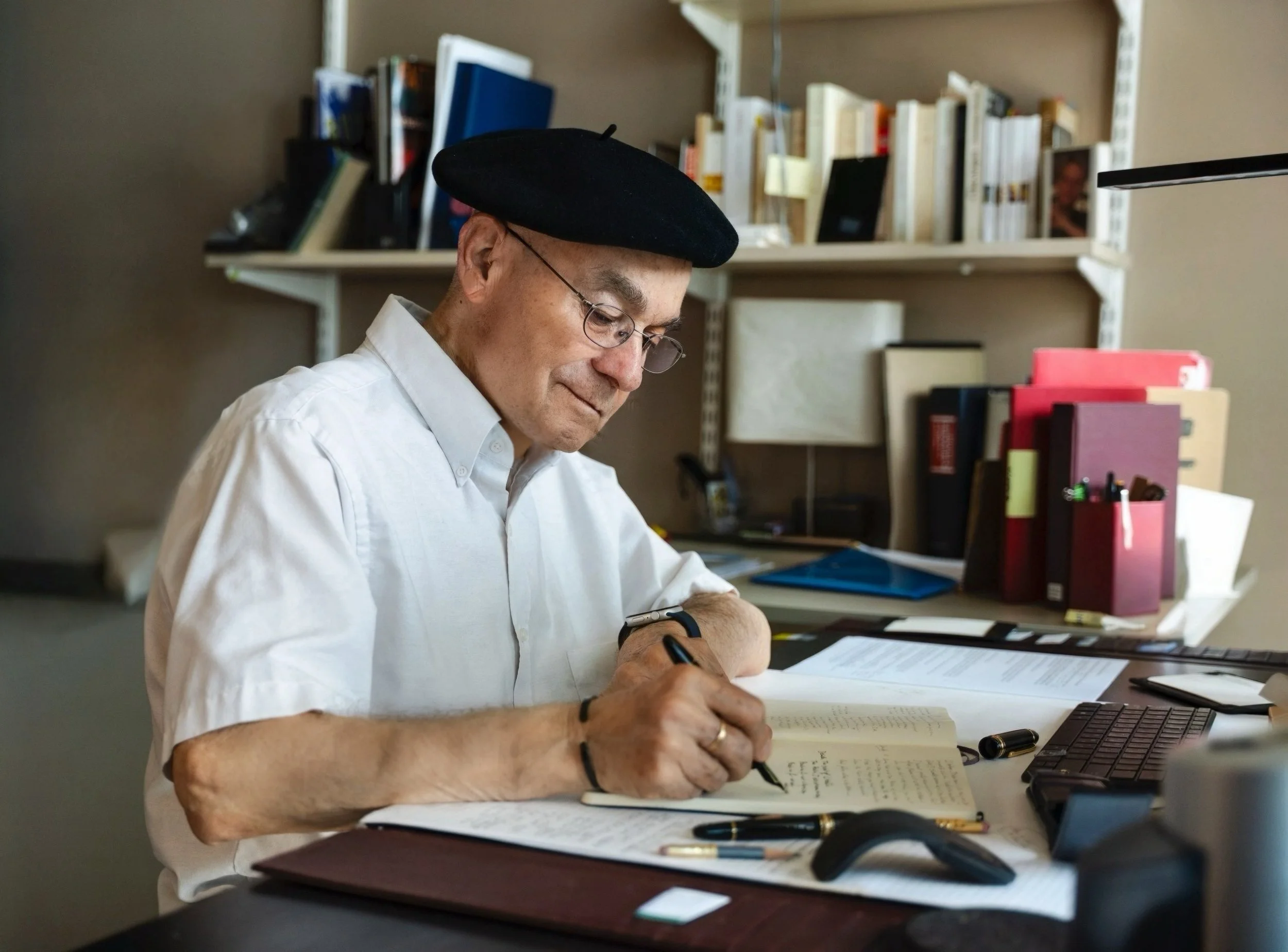FAQ
Do you stay involved in social change projects?
Only one. I serve on a Stakeholder Advisory Board with the Hercules Center at Emory University, focusing on environmental exposures and potential health risks. I’ve passed the leadership of Historic Westside Gardens, a project I founded, to the local community. While I’m no longer actively advising, they keep me in the loop. It’s rewarding to see my successor lead it so well.
Why do you write?
I write to search for my truth. I rarely know the answer when I begin. I work without an outline; the process matters just as much as the product or even the solution to whatever question arises while writing. It’s completely different from professional writing.
What’s a typical day like for you?
In addition to my writing practice, I value time with friends; here, in France, and in Israel. Travel is often a way to maintain those connections. Even at my regular café, I take time to engage, especially with baristas and staff. Friendship is at the heart of who I am. “Friend” is even part of the title of both of my books.
How do you know when a book is finished?
I don’t always. I simply feel when nothing more needs to be added, when continuing would dilute the core. But I usually begin a new piece right after. I go through a lot of starts and stops—sometimes writing thousands of words before finding the real question. That’s what happened with my current project. I had set out to write a novel with a plot and characters, but it wasn’t coming together. Then, after reading a particular book, something clicked. The pace and rhythm shifted, and I knew I’d found it, though it was far from what I’d initially intended. Still, the pleasure of writing it makes the time worthwhile. It’s not historical fiction, but it explores stories from history that directly shape who I am.
Do you have a favorite character in your own writing?
I believe our favorite characters reflect the stories we tell ourselves, or the stories others have told that shape us. My fiction is rooted in real people and imagining their lives, their thoughts, and even the author’s thoughts as he writes. I don’t see much difference between fiction and autofiction. The only two radically distinct forms of writing, in my view, are poetry and scientific writing. I often insert poetry into the narrative when it feels necessary, when conventional language and form don’t suffice.
How do you recommend new writers get started?
The simplest advice is also the hardest to follow: sit down and keep writing. Writing is reading. It’s work. You have to show up for it every day. At my age, going to the café feels like going to my workplace. But my strongest recommendation is to read, let reading lead you to a moment where you feel compelled to write more. Then get a pen and paper, and just begin. Take notes. I email myself thoughts all the time and carry a pocket notebook and pen with me everywhere, every day.
How long have you been writing?
In and out for sixty years, starting with a poetry leaflet in high school, then newsletters for wherever I was involved (youth movement, kibbutz), grant writing, and speeches for projects I created or led. However, I never stopped reading. Like Robert Gottlieb, I’m an avid reader, and that love for reading showed when I returned to writing after my wife passed away. The last five years have been my most productive and enjoyable writing period.
What’s your ideal writing day like?
Up by 5 AM, espresso in hand, reading for an hour and a half. Then a morning walk with my buddy, followed by writing time at my favorite café, I’m a café writer. I write longhand for two to three hours with my favorite pen (a Meisterstück Montblanc, a gift from my wife a week before she died). Afterward, I return home for my “learning time”: reading authors, literary blogs, journals, magazines, or attending online seminars, recently Jacques Derrida and Hélène Cixous, or watching lectures and interviews on YouTube. Later in the day, I type up what I wrote in the morning and spend another hour or two working. I like to end the day with a film.
How long does it take you to write a book?
Usually two to three years. There are many rewrites involved, especially since I use my bilingualism: I write in French, translate into English (which becomes my first serious rewrite), then retranslate into French (a second rewrite), and finally compose a full draft in English. After several more English rewrites, I share it with trusted friends for critique, which leads to at least two more revisions. I’ve worked with a copy editor, but I haven’t yet experienced working with a full editor.


